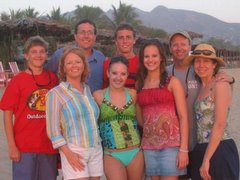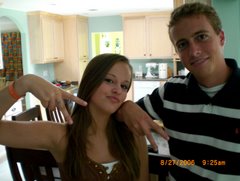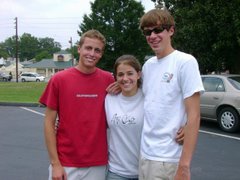The hospital we once drove by without a moment's thought is now avoided because it holds the memory of the death or illness of a loved one. The office where we once worked now only serves as a reminder of being fired or laid-off. A favorite restaurant where we dined with a spouse or partner triggers a panic attack after the relationship ends or a spouse dies.
The list goes on and on.
After my 18-year-old son died, it became almost unbearable for me to go to church--despite a deep love for God and an ever-increasing faith. Every Sunday, we sat together as a family in the same general area--the front, left section of the congregation.
We tried sitting in a different place, but I found myself staring at the area where we used to sit with an overwhelming sadness inside. We tried attending the 11:00 a.m. service held in the main sanctuary but realized, as soon as the music began, it wouldn't work either. That was where Jacob's memorial service had taken place.
Tremendous pain was associated with what was once a joyful place. I didn't want to be there anymore. I wanted to be in church, but not the old, familiar buildings and rooms.
Two years after Jacob's death, my husband and I decided to attend a new church. In the end, the pain won out.
For my husband, our renovated 1950's brick ranch, located a short bike ride from the beach, became a place of painful association. Years of memories--celebrating holiday dinners, decorating for Christmas, planting bushes that were Mother's Day presents, tossing tennis balls for our golden retriever--turned the house and yard he once loved into harbingers of pain.

He wanted to move, frequently saying, "The same old life without Jacob in it isn't going to work. I need change!"
I couldn't leave.
I loved going into Jacob's bedroom to look at his beloved collection of model sports cars, page through his Bible or touch his clothes left hanging in his closet and tucked neatly into his dresser drawers. I would even lie down on his bed and cry out to God, asking "Why?" Time and time again, God comforted me there. It was my refuge and that was reason enough to stay.
My husband let up briefly when our daughter also put up a fight about moving. He also sank deeper into depression, rarely smiling or interacting with us. When he came home from work, he'd go to the couch, turn on the television and stare blankly at the screen.
I knew we were in trouble.
He asked Raleigh and me to consider other major decisions he had made for our family, pointing out that they had served our family well in the past. He hoped we would reconsider, based on his record, and trust him on this one.
The next time my husband was out of town, Raleigh and I had a long discussion about the health of our family. Together, we came to the conclusion that having a husband and father who was at peace was more important than having a house the held precious memories. Life had already changed so much. Losing the house we loved was nothing compared to the thought of losing the man we so dearly loved.
Two-and-a-half years after Jacob died, we moved. In the end, the pain won out. Again.
But that's not the whole story.
Although I fell to my knees crying in Jacob's room the day we moved, I was astounded by the peace and joy I felt in our new home.

The real test, however, was our daughter. The kicking and screaming she promised she'd do if we ever moved never happened. Instead, she confessed to also having peace with the move. She still missed our house, but no longer hated the new one. I discovered I was able to create a new place for my life and that our old house, without Jacob in it, just didn't work anymore.
My husband's wisdom served our family well.
Running from pain is not healthy, but refusing to inflict unnecessary pain upon ourselves is--even if it means choosing a different route, restaurant or residence. Personal experience and observation have shown me it's good to create boundaries which may limit the pain of grief. Building walls to block out pain only slows our progress in healing.
We each make choices whether to stay where we are or move to a new place in the aftermath of grief. Those choices might involve compromise. And they require time.
Lots of time.








